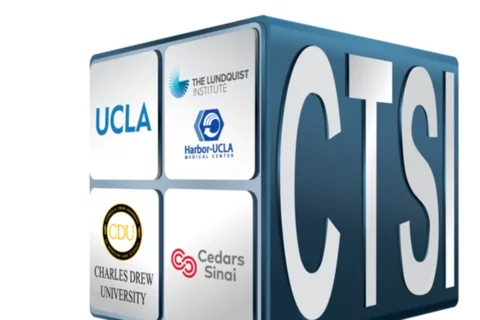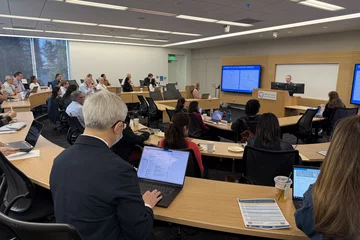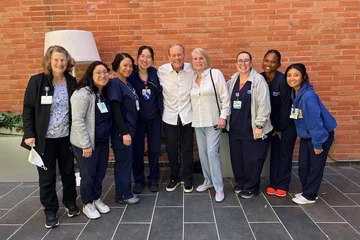$6.2 million NIH grant to support UCLA study of how COVID-19 causes multiple organ failure

CTSI congratulates our partner, Dr. Arjun Deb, director of the cardiovascular research theme for the David Geffen School of Medicine at UCLA, on the prestigious NIH award to research how SARS-CoV-2 causes damage to multiple organs in the body
Researchers from the Eli and Edythe Broad Center of Regenerative Medicine and Stem Cell Research at UCLA have received a $6.2 million grant from the National Institutes of Health to study how the SARS-CoV-2 virus causes damage throughout the body.
The Director’s Transformative Research Award was presented through the NIH’s prestigious High Risk, High Reward program, which supports creative and unconventional approaches to major challenges in biomedical and behavioral research.
What makes SARS-CoV-2, the virus that causes COVID-19, so dangerous for some people is that although it is a respiratory virus, it can wreak havoc on almost any organ in the body. Studies have found that people who are hospitalized with COVID-19 and have damage to organs other than their lungs have a considerably higher risk for death. Even some people who recover from severe COVID-19 are left with long-term symptoms related to the damage to their other organs.
“It was a big puzzle at the start of the pandemic, and remains a big puzzle today, as to why a respiratory virus, which primarily affects the lungs, would cause such widespread damage throughout the body,” said Dr. Arjun Deb, director of the cardiovascular medicine research theme at the David Geffen School of Medicine at UCLA. “We need to figure out how this is happening in order to develop treatments to stop it.”
Deb is leading the UCLA research team, which also is made up of professors Vaithilingaraja Arumugaswami, Thomas Graeber, Jake Lusis and Matteo Pellegrini.
Continue reading the UCLA press release.
image caption: Microscope images showing (left) healthy heart muscle cells and (right) heart muscle cells that have been infected and damaged by the SARS-CoV-2 virus (in green).
Image source: UCLA Broad Stem Cell Research Center/JCI Insight



